
Finally outed: Sabrina Rubin Erdely from Rolling Stone magazine
"[F]or sheer maliciousness, it is hard to top the piece in Rolling Stone. The factual errors, the stereotypes, the grand omissions, and the melodramatic language make for an incredible read. Make no mistake about it, the author, Sabrina Rubin Erdely, has secured her place in the annals of yellow journalism."
No, that is not just another comment about the explosive new media revelation that a highly celebrated article weeks ago by Erdely in Rolling Stone magazine about gang rape by a fraternity at the University of Virginia (UVA) was completely bogus.
The words are from Dr. Bill Donohue of The Catholic League over three years ago – in September 2011 – about a piece Erdely wrote about alleged sex abuse and cover-up in the Archdiocese of Philadelphia. Back then, Donohue uncovered numerous errors and misleading passages in Erdely's article.
In her 2011 article, Erdely, among many other salacious tales, relayed the bizarre claims of "Billy" – whom readers of this site know to be Florida resident Dan Gallagher – who has claimed to have been somehow raped, molested, and sodomized by three different men – two priests and a Catholic school teacher – years ago as an altar boy in Philly in the late 1990s.
And as we have repeatedly chronicled here at TheMediaReport.com, veteran journalist Ralph Cipriano at BigTrial.net has doggedly uncovered information that Gallagher's madcap stories were most certainly fabricated. The lives of these three innocent men have been shattered by Erdely's reporting. (Check out the latest from Cipriano.)
Now that the mainstream media has come around to concluding that Erdely's tale of ceremonial gang rape at UVA was false, we hope that it will now revisit her preposterous 2011 story about abuse in the Archdiocese of Philadelphia.
We then hope the mainstream media will finally begin to question the prevailing media narrative about sex abuse in the Catholic Church that has gone completely unchallenged for decades now.
We won't hold our breath, however.
[See our complete coverage about the Catholic Church abuse story in Philadelphia.]
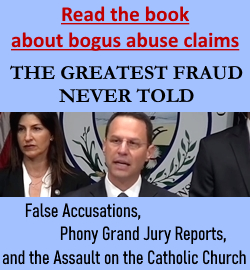


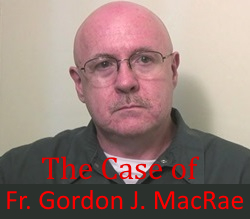

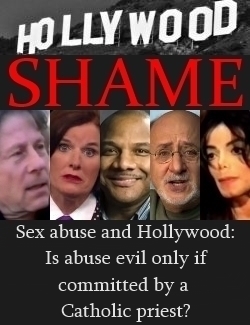

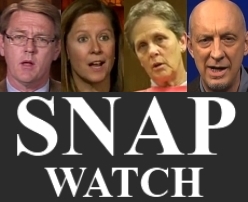
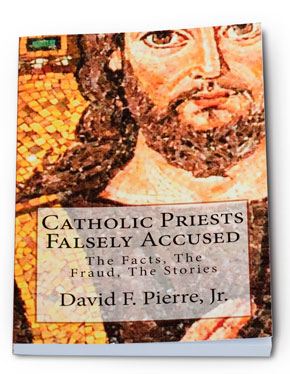
someone should check out Erdely's 2013 military rape story too.
(Pre-note: I had put this comment together for the immediately previous TMR article, but when I opened up the TMR site I see that DP has already got a new article up. I am putting this comment up without having read the TMR article but I imagine it will be relevant, if possibly a bit repetitive in light of the article.)
Both ‘Julie’ and ‘Malcolm Harris’ have raised solid points about the role of the media and specifically: how the media manipulates its ‘reporting’ in order to support some pre-determined agenda, with notably less regard to facts.
I have been following the recent revelations in regard to an article last month in the magazine Rolling Stone (RS) about an alleged gang-rape at the University of Virginia (UVA).
Readers may easily enter the terms into a search-engine for a wider reading on the current state of the affair. In short: an RS female reporter recently broke a story in that magazine about a female (‘Jackie’) UVA student who claimed that in September of 2012 she attended a large fraternity pledge-party where she was invited upstairs to a “pitch-black” room where over the course of three hours she was gang-raped with a broken bottle on a bed of glass from other broken bottles, at the end of which time two of the alleged “premeditated” rapists then had a pitch-perfect conversation about whether to summon medical help for her and after some back-and-forth (published in the article) decided against it. ‘Jackie’ recognized one of the accused as a classmate (although the room was in “pitch black” darkness.
It gets better (or worse, depending on your point of view): the editors of RS were asked by ‘Jackie’ not to interview the accused for the story and the editors agreed not to contact or interview any of the accused out of “sensitivity” to a rape-victim.
All of this taking place during a current campaign against i) a claimed epidemic of collegiate rape-culture and ii) a collegiate/university organizational refusal to do enough to prosecute claims of rape among their students. (Readers familiar with the dynamics of the Stampede might not find much of all this unfamiliar.)
Further investigation was prompted by alumni and the fraternity (not so much the UVA authorities, whose (female) president proclaim their determination to continue intensifying their efforts (and prosecutions?) of alleged rapes on campus or among students.
The fraternity did not have a pledge-party or any other social event on the night of the alleged incident. And although ‘Jackie’ had identified one of her (alleged) rapists as being a lifeguard at the University swimming pool, there were no members of the fraternity on the lifeguard roster in that timeframe.
In light of those facts, now brought to their attention, the editors of RS now admit that the story was “flawed” and that they had erred in placing their “trust” in the allegant (to the exclusion of any other attempt at corroboration).
Although, in another clear indicator of the in-roads made by the culture of victimism and ‘sensitivity” and the fear of ‘re-victimizing’ presumed victims, the editors also voice regret that in accepting the allegant’s story sight-unseen (so to speak) they had “done her a disservice”. In other words: their concerns are not so much for the actual and factual truth, nor for any harm caused to readers and the accused, but rather their concerns are for the allegant (whom many no doubt are conditioned to refer to as ‘the victim’).
In their defense – and in another indication of how these things are done – the editors say they had run the story by their legal department, and got back the legal opinion that as long as the accused were not mentioned by name then the story was OK from a legal point of view.
The reporter now says she feels pretty good about the story and that she did the right thing (what else, really, could she say?). And in yet another pitch-perfect revelation of how the media operate in these things, she insists that the focus on the factuality and accuracy of her story are merely efforts “to divert attention from the real scandal – a crime that had not been sufficiently investigated”.
Consider that last assertion: a) facts don’t matter; b) any effort to actually determine facts is simply an effort to divert attention; c) the “crime” of the rape is presumed to have been accurate and factual (even though no effort was made to corroborate it). And d) the reporter is rather selectively concerned for “investigation” since when her own article was being put together she saw no reason to ‘investigate’ any of the allegations whatsoever.
The allegant is also sticking to her story (so far; and what else, really, could she say?).
The reporter has further revealed that she had considered stories from other schools, but they weren’t quite right in her opinion, since UVA presented a school “without a thriving radical feminist culture seeking to up-end the patriarchy”.
Readers may sense the presence of a type of ideologically driven ‘reporting’ so reminiscent of Pravda and Izvestia back in their Soviet heyday.
In its current edition (the weekend edition of 6-7 December, page A-12 in the print edition) the Wall Street Journal has an editorial entitled “Like A Rolling Stone”.
It notes the “discrepancies” in last month’s RS article and observes that “all publications make mistakes”. However, the editorial continues, “this one is worth some meditation for what it says about our larger media and political culture” (and readers here may find that thought familiar).
One reason for this particular ‘mistake’, the editorial says, is “a natural human reluctance to investigate the credibility of an alleged rape victim”. Consider that statement for a moment. I would say that it was not always so; and that, in fact, there was a time in the not-so-distant past when an allegation and accusation of so repellent and violent a crime most certainly would have resulted in a “natural” desire to verify it so as to consider prosecution of the perpetrators. But not any longer and not nowadays. Instead, these days, the allegation of horrendous sex crimes is not to be investigated but rather presumed-as-accurate – once again, starting the game at first or second base rather than at home-plate. And I would say that the “natural” human response to claims of horrendous doings is precisely to inquire further and find out the facts. But not these days, after some decades of sustained and heavily-influenced and influential elite and government efforts to change the “natural” in human beings and in society and culture.
But after that (somewhat wobbly) first point, the editorial gets to the heart of the media matter: the reporter “was, by her own admission, looking for a story to fit a pre-existing narrative”, which in this case was the two-part guilt of both the rapists and the university that did not investigate the rapes. (Precisely the trope of the 2002 phase of the Stampede: sue the Bishops because they not only i) knew that priests were committing wholesale rapine but also ii) ‘covered it up’ and did not investigate and did not report to the police.)
The editorial continues: “In other words, [the RS reporter] did not construct a story based on facts, but went looking for facts to fit her story”. And further that “she appears to have been looking for a story to fit the current popular liberal belief that sexual assault is pervasive and pervasively covered-up”. (And readers here may consider the applicability of the WSJ’s insight to the Stampede.)
“We live in an era of politically driven narratives”, the editorial admits, “which the media often use to assert ‘truths’ before bothering to ascertain facts”. And “we’ve seen the harm those narratives can do”. (And readers here may consider the applicability of the WSJ’s insight to the Stampede.)
its a shame that the catholic church will do anything to deny their priest molesting boys '
The Catholic Church is the worst form of abusing God Word ,,,and I KNOW THEIR PRIEST LOVES LITTLE BOYS ….yip they love little boys
SHAME ON YOU
When it comes to sexual offenses, have we gotten so far past the bedrock jurisprudence principle of innocent until proven guilty? Don't let the facts get in the way of a good story.
It is the modern day version of a lynch mob. Real victims and civil society are not served by hysteria and a stampede to "justice".
Individuals and institutions who have been affected by these spurious claims ought to have their day in court against reporters of this ilk.
Joanne, on December 10th, has hit the nail on the head when she says that institutions affected by the spurious claims (in Rolling Stone) should have their day in court.The magazine says that the legal advice they obtained assured them that as long as nobody was named then everything would be fine. Yeah right?. Well every member of that particular fraternity is now a suspected rapists. Other students would know the names of the individual members of that fraternity, Moreover the University of Virginia has had it's good reputation tarnished. A consequence will be lower enrollments and less gifts and bequests from donors.
The UVA should hit the magazine with a million dollar lawsuit. But will they?. Will they fight back? Or will they retreat and hide behind a smokescreen concocted from victimist/feminist ideology.
If ‘Damein’ (the 10th, 1046AM) can point out anywhere here where it has been denied that some abuse cases took place, he needs to put up those references; otherwise what we have here is merely a typical Playbook attempt to create a statement that was never made in order to distract from the uncongenial actualities raised in statements that were actually made here.
Thus too the un-grounded assertions about the “Catholic Church” (capitalized and/or not-capitalized) can be left up there just where they were put.
And – passing over the scream-y capitalized shouting (almost invariably an Abusenik ploy to compensate for lack of substance by shouting) – ditto in regard to what ‘Damein’ claims to “know”.